Blog post by ELP Student Anil Tolwani (Statistics | Class of 2022) Interning at FMB Technologies

1. Don’t Get Distracted
As obvious as it seems, not getting distracted is one of the most important lessons I’ve learned so far. In any sort of startup or self-directed project, there are tons of distractions. But no, these aren’t the things that seem to be what’s distracting — they’re far worse than your average Instagram post or Buzzfeed binge. These are the things that seem like relatively good ideas – things like going to conferences, meetups, “partnership meetings,” etc. – but don’t actually push the needle forward and get you closer to the coveted “product-market fit.”
Now there are obviously cases when these are the right things to be doing for your company, but in general it is extremely easy to get distracted by the glamour of being an “entrepreneur” (whatever that means) and using it as an easy way to get social brownie points and approval from your peers. This is especially true when the only alternative seems to be staring at a debug window banging your head against a keyboard for 10 hours straight. Unfortunately, social approval doesn’t build companies and if you’re truly passionate about what you’re doing it will only be a hindrance down the line. One quote that always comes to mind for me is this:
“People think focus means saying yes to the thing you’ve got to focus on. But that’s not what it means at all. It means saying no to the hundred other good ideas that there are. You have to pick carefully. I’m actually as proud of the things we haven’t done as the things I have done. Innovation is saying no to 1,000 things.” – Steve Jobs
Think of it like this – if you had to pick one thing to get right to make your company great what would it be? Focus on that.
2. Set Barriers
Assuming you’ve got the seemingly-endless passion to solve the problem you’re working on and a never-ending to-do list to get there, it can be really challenging to know when to stop working. Every minute that passes is another minute for the entire market to change dramatically or some revolutionary new technology to surface that can make your company totally obsolete.
This is especially the case for making time for the people who matter in your life. This was especially the case for me – my co-founders and I literally lived together, so there wasn’t a minute during the day I could reflect without feeling guilty. At the same time, doing so is a quick and easy formula for burnout and so it is important to set barriers and limits to when you will and won’t work.
Whether it be cut off times, breaks, or even “forced vacations,” make sure you find a way to consistently decompress and make sure you are focusing on what really matters. Not so ironically, this usually ends up making you more productive and focused during the hours that you do decide to work.
3. Invalidate Your Assumptions

4. Be Impatient Today and Patient Tomorrow
Making decisions without all the answers is a commonly discussed topic in startups. When you’re involved with a startup, you frequently have to choose between making decisions with incomplete information and risk making the wrong one or waiting too long and having opportunities disappear by the wayside. People seem to either fall into the former or the latter and consistently make decisions either quickly but remain rock-hard and never changing or fall into analysis paralysis and never make a decision – neither of which sound like great options. I think the best way to approach this is to try and find a combination of both. To make decisions rapidly, you need the impatience to get started and execute today without hesitation, combined with the patience tomorrow to completely change directions and forget everything you previously learned.
5. Constantly Reflect and Improve
Ironically, the last and most important piece of advice I could give is a bit of meta-advice – constantly make your own. Don’t just listen to the advice of others because they have a position of power or seem knowledgeable because at the end of the day no one knows your business as well as you do. At the same time, however, you need to be able to design and make rules so that you don’t make the same mistakes over and over and continue to double down on your strengths. As simple as it sounds, I’ve found that doing a weekly reflection over just that with a team consistently can dramatically bring you closer to a goal quicker than you thought possible. It has also let me test my own theories on so called “conventional advice” and form my own view of the world.
Concluding Thoughts

Starting any sort of startup is hard. Very hard. But if you continue and persevere and ignore the noise, you can learn things you never would have imagined.
And if you’re interested in what exactly we’re doing over at FMB or just giving me your thoughts and feedback on this article, I’d love to talk to you! Reach me at atolwani@umich.edu.
